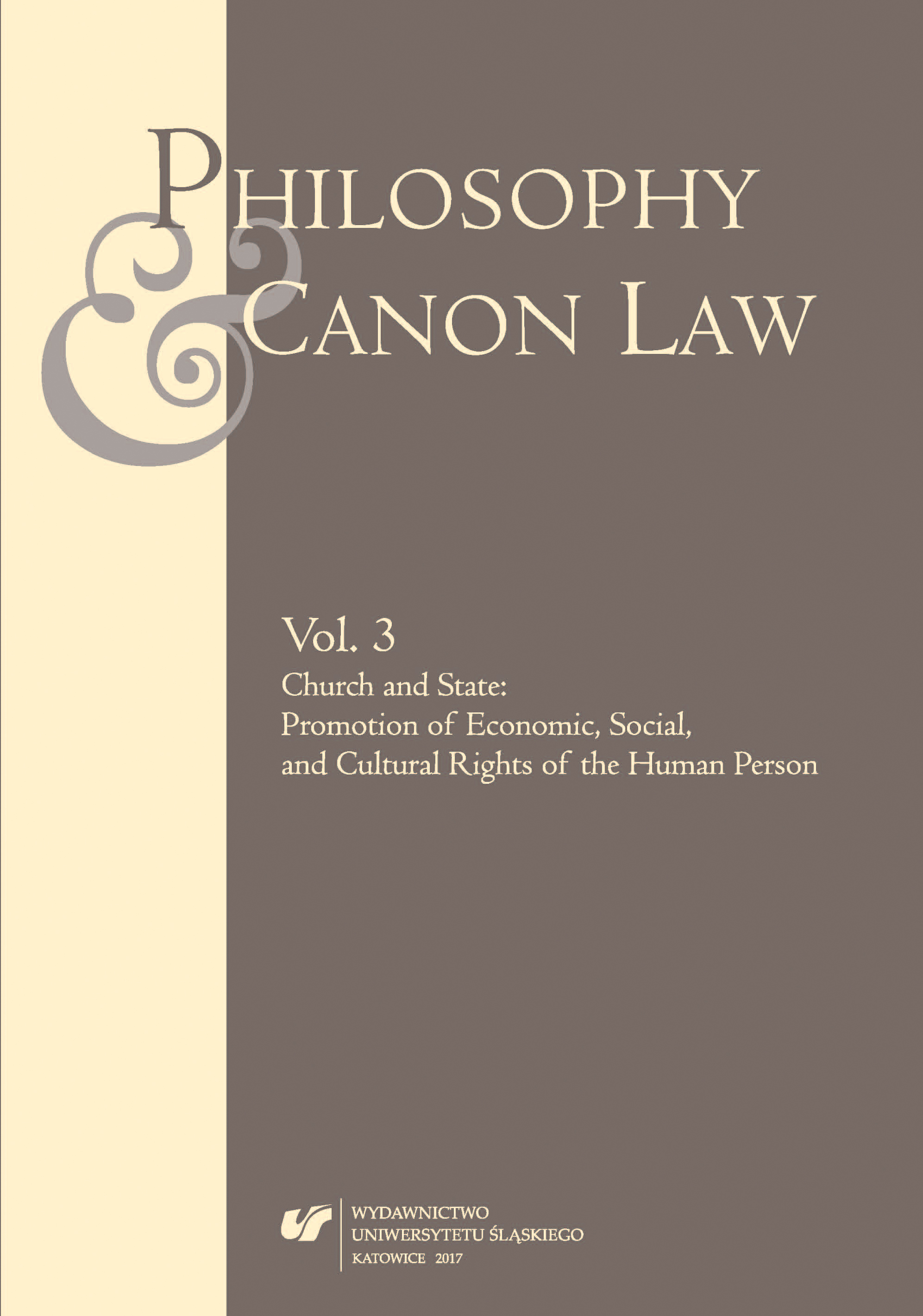In the Circle of the “Culture of Indissolubility”: Family as the First and Fundamental Structure for “Human Ecology”
In the Circle of the “Culture of Indissolubility”: Family as the First and Fundamental Structure for “Human Ecology”
Author(s): Andrzej PastwaSubject(s): Civil Law, Theology and Religion, Family and social welfare, Human Ecology, Canon Law / Church Law
Published by: Wydawnictwo Uniwersytetu Śląskiego
Keywords: family; family crisis; integral ecology; “human ecology;” “culture of indissolubility;” sovereign family; legislation for the protection of identity and sovereignty of family
Summary/Abstract: The study aims to prove that one of the most fundamental postulates of the Church—aimed at the state legislator, inscribed in the preamble D of the Charter of the Rights of the Family—to include in the legislative process the truth about the institution of “the family, a natural society [that] exists prior to the State or any other community, and possesses inherent rights which are inalienable” (preamble D of the Charter of the Rights of the Family)—gains in the interpretation of the anthropological trails of Saint John Paul II’s teaching (mainly in the „Centesimus Annus” encyclical and also in: the „Letter to Families”, in „Evangelium Vitae”, and in the „Addresses to the Roman Rota” from the years 2000–2005) the depth of significance and power of expression. It is in the universal “contexts,” often explicitly exceeding the horizon of Church (legal and canonical) issues: first of all, within the context of the presentation of integral ecology, which—both in the ethical and legal perspective—is connected with protection and promotion of common good; secondly, in a particular context of the original address on human ecology; thirdly, in the context of universal paradigm of “culture of indissolubility” (durability of matrimony as a universal good). In the legal perspective adopted in this study, which refers, first and foremost, to the idea of “sovereignty of family,” all three contexts indeed possible to set apart, however, explicitly complementary—can be boiled down to the latter one. Today, when the message of the Church about ecology is capable of getting wide social response, a consistent presentation of “human ecology” and “culture of indissolubility” postulates, potentially gives a tool for a more effective influence over the shape of legislature promoting family and stating a pro-family policy.
Journal: Philosophy and Canon Law
- Issue Year: 2017
- Issue No: 3
- Page Range: 177-195
- Page Count: 19
- Language: English

